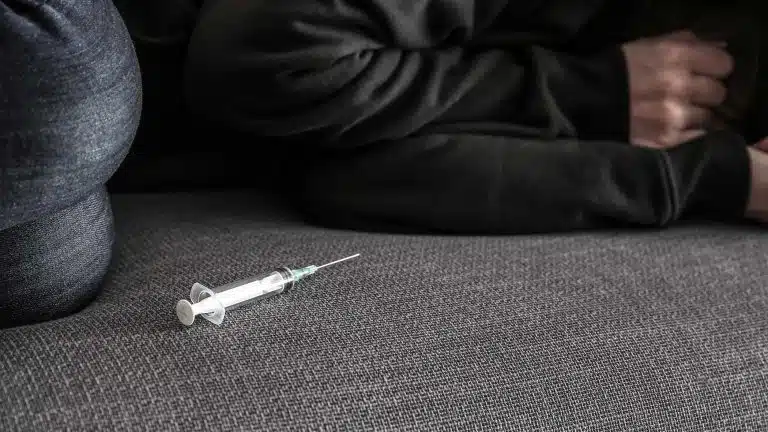Ketamine Overdose | Can You Overdose On Ketamine?
- Effects Of Ketamine On The Brain
- Negative Side Effects Of Ketamine
- Can You Overdose On Ketamine?
- Symptoms Of A Ketamine Overdose
- Treatment For Ketamine Overdose

Ketamine is an FDA schedule III drug and medical anesthetic most commonly used as veterinary medicine to reduce or block animal pain during surgical procedures.
In low doses, ketamine has also shown potential in treating mental health disorders like medication-resistant depression, suicidal thoughts, and post-traumatic stress disorder (PTSD).
It’s also a popular club drug and hallucinogen. Ketamine causes dissociative, euphoric highs as well as negative effects that can include fatal overdose symptoms, especially when the drug is mixed with alcohol or other depressant drugs.
Effects Of Ketamine On The Brain
Ketamine, also called kit kat, special k, vitamin k, and cat valium, is similar in structure to phencyclidine (PCP).
Like PCP, it has been called a ‘dirty drug’, meaning that it has a wide range of poorly understood effects on the brain. These effects change depending on how much is taken at any one time.
In low doses, ketamine:
- increases glutamate activity, a neurotransmitter used by the brain to strengthen synaptic connections and process thinking, emotion, learning, memory, and memory responses
- activates opiate receptors, the same receptors that heroin and opioid prescription painkillers target, causing relaxation and sedation
- inhibits NMDA receptor activity, causing dissociative anesthetic effects
In higher doses the drug heavily suppresses glutamate activity, further increasing its anesthetic effects and interfering with memory formation, coordination, and responses to outside stimuli.
Negative Side Effects Of Ketamine
Once taken by snorting or IV/intramuscular injection, ketamine’s effects begin within a few minutes and last between thirty minutes and one hour.
Ketamine use can also cause negative side effects that may include:
- psychosis
- nausea and vomiting
- fatigue
- confusion
- short term memory loss
- anxiety
- paranoia
- slow heart rate
- loss of appetite
- slow breathing
- changes in blood pressure and cardiovascular function
- seizures
Because the drug causes feelings of detachment, relaxation, and sedation, and because of its ability to interfere with coordination and memory formation in higher doses, ketamine is sometimes used as a date rape drug.
Can You Overdose On Ketamine?
While ketamine is generally unlikely to cause overdose on its own, it’s sedative effects can cause dangerous and even fatal overdose symptoms in high doses.
This risk increases greatly if the drug is taken by those without tolerance to its effects, or if it is used in combination with other CNS depressants including:
- opioid painkillers
- benzodiazepines
- alcohol
Ketamine is also often combined with other mind-altering recreational drugs including hallucinogens, marijuana, MDMA, and others to change or alter the resulting experience. This makes ketamine overdoses both unpredictable and dangerous events.
Symptoms Of A Ketamine Overdose
Possible symptoms of a ketamine overdose include:
- severe respiratory depression (slow, shallow, or stopped breathing)
- chest pain and muscle aches
- paralysis
- dangerous changes in blood pressure
- dangerous changes in heart rate
- amnesia
- delirium
- psychosis
- elevated body temperature
- nausea and vomiting
- unconsciousness
- coma
Death can occur due to respiratory suppression, or because the individual chokes or suffocates on their own vomit due to drug-induced paralysis.
What To Do When You Suspect A Drug Overdose
If you suspect a drug overdose has occurred, call for immediate medical care as soon as possible and be ready to share vital information, including:
- the victim’s symptoms
- gender
- age
- weight
- what they took
- when they took it
Also, make sure to put the individual in the rescue position, on their side with the lower arm extended, the upper arm angled so that the wrist and forearm are below the head, and with the upper leg shifted forwards for support. This will reduce the risk of death due to vomiting.
Treatment For Ketamine Overdose
There is no antidote for a ketamine overdose. However, medical personnel can treat the overdose symptoms and provide supportive, life-saving care.
Treatments may include administering IV fluids, antipsychotic medications, respiratory support, and more.
Symptoms of a ketamine overdose typically improve within one to three hours, though coordination, judgment, memory, and the senses can remain impaired for a day or longer.
Treating Ketamine Abuse
If you or a loved one struggles with the use of ketamine or other controlled substances, professional treatment may be able to help. To learn more, contact Ark Behavioral Health today.
Written by Ark Behavioral Health Editorial Team
©2024 Ark National Holdings, LLC. | All Rights Reserved.
This page does not provide medical advice.
Drug Enforcement Administration - Drug Fact Sheet: Ketamine
National Institute on Drug Abuse - Ketamine
National Library of Medicine: MedlinePlus - Esketamine Nasal Spray
NCBI Bookshelf - Ketamine - StatPearls

Questions About Treatment?
Ark Behavioral Health offers 100% confidential substance abuse assessment and treatment placement tailored to your individual needs. Achieve long-term recovery.
100% confidential. We respect your privacy.
Prefer Texting?
Our friendly support team is here to chat 24/7. Opt out any time.







 Learn More
Learn More








